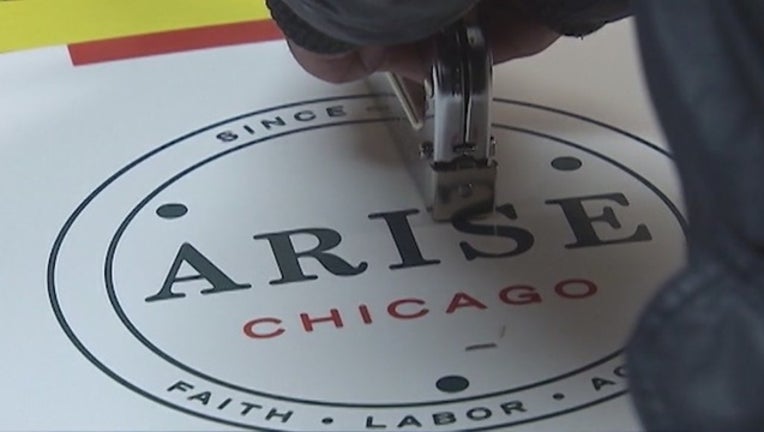Immigrants, unions march in US for rights, against Trump

NEW YORK (AP) -- Immigrant and union groups will march in cities across the United States on Monday to mark May Day and protest against President Donald Trump's efforts to boost deportations.
Tens of thousands of immigrants and their allies are expected to rally in cities such as New York, Chicago, Seattle and Los Angeles. Demonstrations also are planned for dozens of smaller cities from Ft. Lauderdale, Florida, to Portland, Oregon.
In many places, activists are urging people to skip work, school and shopping to show the importance of immigrants in American communities.
While union members traditionally march on May 1 for workers' rights in countries around the world, the day has become a rallying point for immigrants in the U.S. since massive demonstrations were held on the date in 2006 against a proposed immigration enforcement bill.
In recent years, immigrant rights protests shrank as groups diverged and shifted their focus on voter registration and lobbying. Larger crowds are expected to return this year as immigrant groups have joined with Muslim organizations, women's advocates and others in their united opposition to Trump administration policies.
"We have never seen such an outpouring of support since we have since the election of Donald Trump," said Kica Matos, a spokeswoman for the Fair Immigration Reform Movement.
As Trump approaches his first 100 days, he has aggressively pursued immigration enforcement, including executive orders for a wall along the U.S.-Mexico border and a ban on travelers from six predominantly Muslim countries. The government has arrested thousands of immigrants in the country illegally and threatened to withhold funding from jurisdictions that limit cooperation between local and federal immigration authorities.
In response, local leaders have vowed to fight back and civic participation has seen a boost, including February's "Day Without Immigrants." The travel ban and sanctuary order were temporarily halted by legal challenges.
In addition to rallies, immigrant rights activists in communities in Indiana, Massachusetts, Texas and elsewhere are calling for strikes to show Americans the demand for immigrant labor and immigrants' purchasing power.
"On this day, we will not go to work. We will not go to school. We will not buy anything," said Francisca Santiago, a farmworker from Homestead, Florida.
Immigrant advocates said they hope their message will reach Trump, congressional lawmakers and the public, as well as provide a sense of unity and strength to those opposed to the administration's policies. In spite of Trump's avowed crackdown on illegal immigration, many said they hoped a show of strength would help persuade politicians to rethink their plans.
Tom K. Wong, a professor of political science at University of California, San Diego, said the Trump administration's focus on immigration is generating more support for immigrant rights advocates.
"Every pivot back to the issue of immigration gives the immigrant rights movement another opportunity to make its best pitch to the public," he said.

